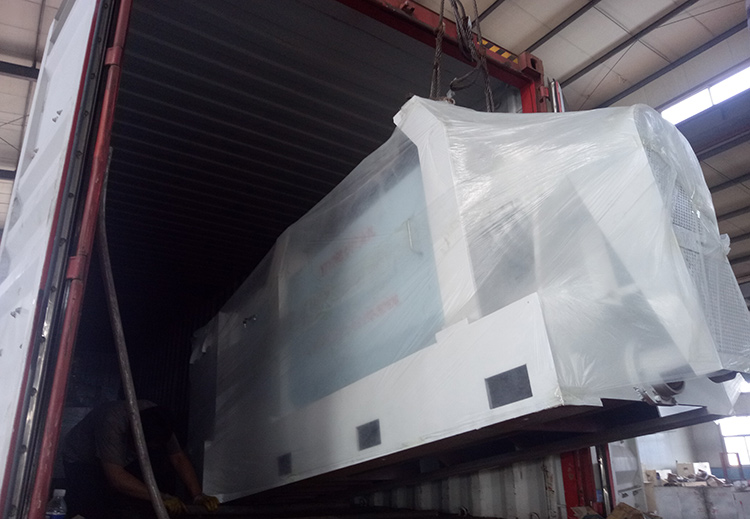Aug . 14, 2024 13:29 Back to list
Complete Guide to Setting Up Efficient Vegetable Oil Production Line Systems and Equipment Solutions
The Vegetable Oil Production Line A Comprehensive Overview
The global demand for vegetable oil has risen dramatically over the years due to its versatility, health benefits, and increasing use in various industries. As a result, the vegetable oil production line has become a vital area of focus for manufacturers looking to optimize operations, enhance product quality, and meet the diverse needs of consumers. This article explores the key components and processes of vegetable oil production lines, the types of oils produced, and the future direction of this industry.
Key Components of the Production Line
A typical vegetable oil production line consists of several integrated components designed to convert raw seeds into refined oils ready for consumption or further processing. The initial stage involves seed preparation, which includes cleaning, dehulling, and conditioning. This step is crucial to ensure the removal of impurities and to create optimal conditions for oil extraction.
Following seed preparation, the oil extraction process begins. There are two primary methods for extracting oil mechanical pressing and solvent extraction. Mechanical pressing involves the use of hydraulic or screw presses to physically squeeze the oil from seeds, while solvent extraction employs chemical solvents, such as hexane, to dissolve the oil. Each method has its advantages; mechanical pressing is more natural and often preserves more nutrients, while solvent extraction tends to yield a higher quantity of oil.
After extraction, the crude oil undergoes refining, which is essential to improve its taste, color, and shelf life. The refining process typically includes degumming, neutralization, bleaching, and deodorization. These steps remove free fatty acids, phospholipids, pigments, and odor-causing compounds, resulting in a cleaner and more palatable product. The final stage of the production line may involve packaging, where the refined oil is bottled and labeled for distribution.
Types of Oils Produced
vegetable oil production line products

The vegetable oil production line caters to a wide array of oil types, each with unique characteristics and applications. Some of the most popular vegetable oils include
1. Soybean Oil Widely used in cooking and food processing, soybean oil is known for its mild flavor and high smoke point. 2. Sunflower Oil Characterized by its light taste and high vitamin E content, sunflower oil is often used in salad dressings and frying. 3. Canola Oil Extracted from rapeseeds, canola oil is favored for its health benefits and low saturated fat content, making it a popular choice for health-conscious consumers. 4. Palm Oil Known for its rich flavor and versatility, palm oil is frequently used in baked goods and processed foods, although its environmental impact has sparked controversy. 5. Olive Oil Often associated with Mediterranean cuisine, olive oil is renowned for its rich taste and health-promoting properties.
Future Trends in Vegetable Oil Production
As consumer preferences continue to evolve, the vegetable oil industry is poised for significant changes. Sustainability has become a critical focus, driven by growing environmental awareness. Manufacturers are increasingly adopting eco-friendly practices, such as sustainable sourcing and waste minimization, to improve their environmental footprint.
Additionally, the rise of plant-based diets and alternative protein sources is driving innovation in the vegetable oil sector. New extraction technologies and methods are being explored to enhance oil yield and nutritional profile, particularly for oils derived from lesser-known seeds and nuts.
In conclusion, the vegetable oil production line plays an integral role in meeting the global demand for high-quality oils. As technology evolves and consumer preferences shift, the industry will likely continue to adapt, prioritizing sustainability and health, ultimately contributing to a more responsible and efficient production system. The journey of vegetable oils from seed to table is a testament to the complexities and advancements of modern food manufacturing.
-
HP 120 Cold Oil Press - Hebei Huipin Machinery | High-Efficiency Oil Extraction
NewsAug.17,2025
-
HP 120 Model Cold Oil Press-Hebei Huipin Machinery|Oil Extraction, Cold Press
NewsAug.17,2025
-
HP 120 Cold Oil Press-Hebei Huipin Machinery|Oil Extraction, Cold Press Machine
NewsAug.17,2025
-
HP 120 Cold Oil Press-Hebei Huipin Machinery|Oil Extraction, Cold Pressing
NewsAug.17,2025
-
High-Efficiency Black Seed Oil Expeller & Cold Press Machine
NewsAug.17,2025
-
HP 120 Model Cold Oil Press - Hebei Huipin Machinery | Oil Extraction Machine, Flaxseed Oil Press
NewsAug.16,2025
